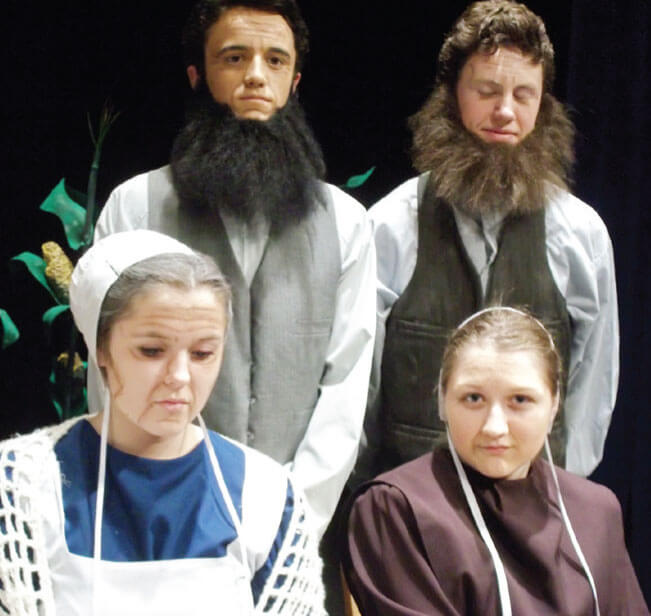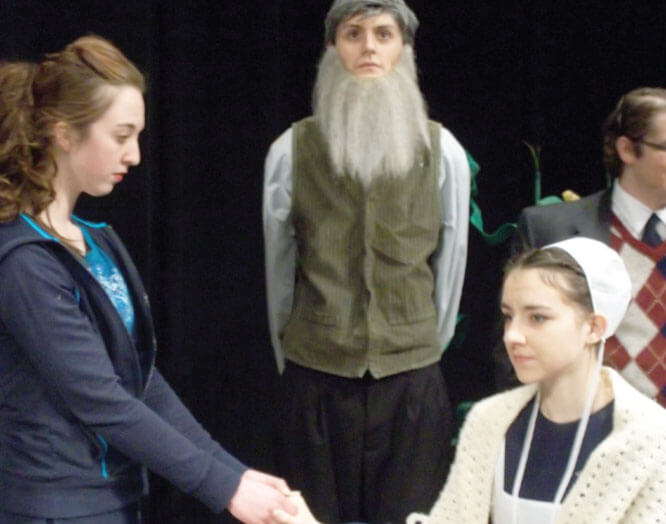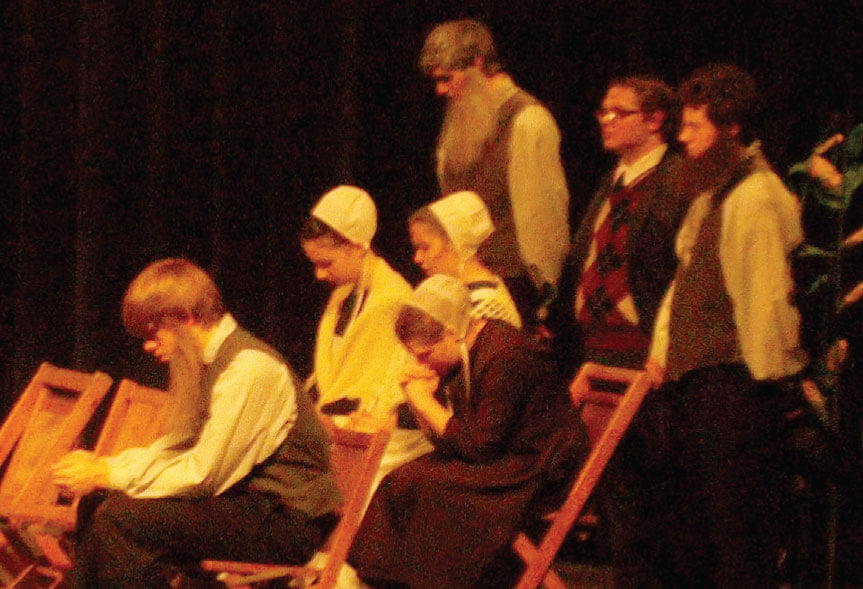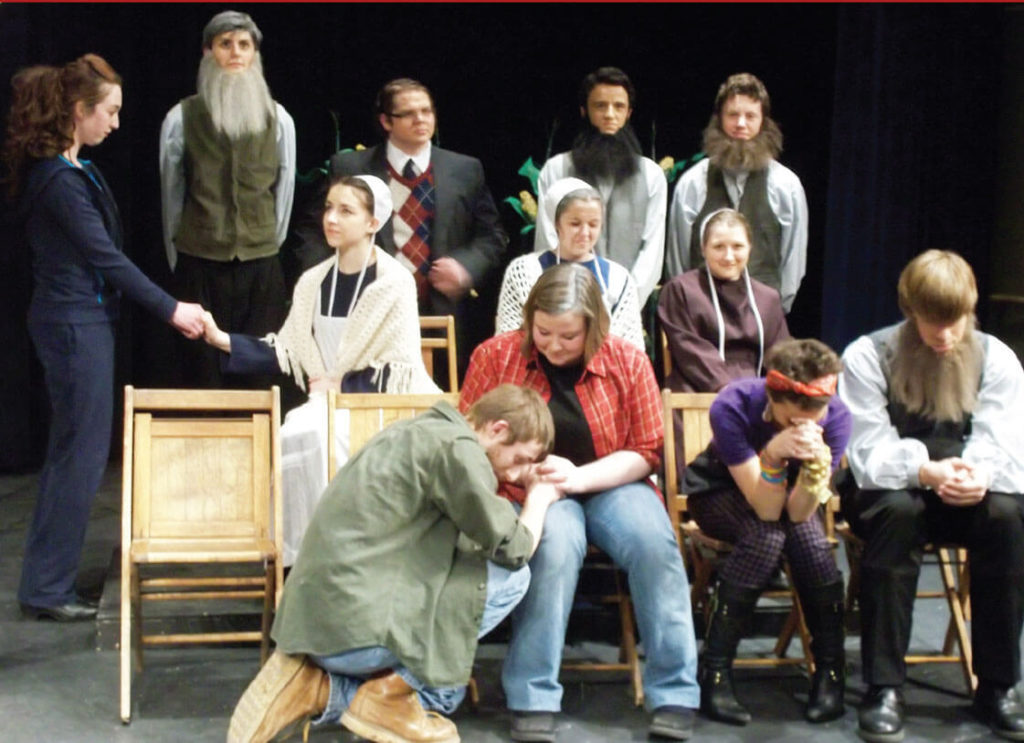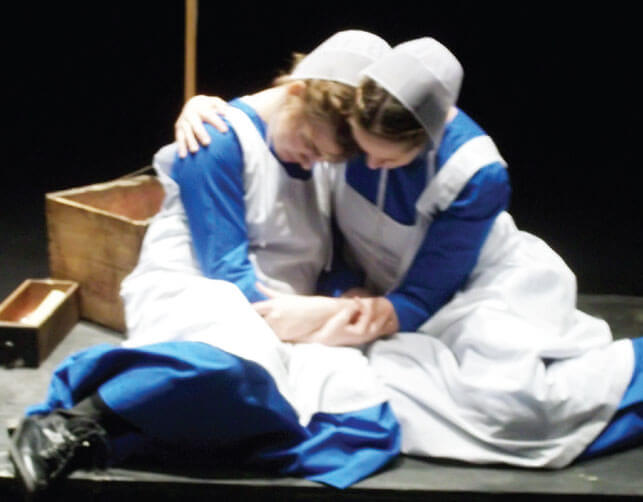by Julie Surma
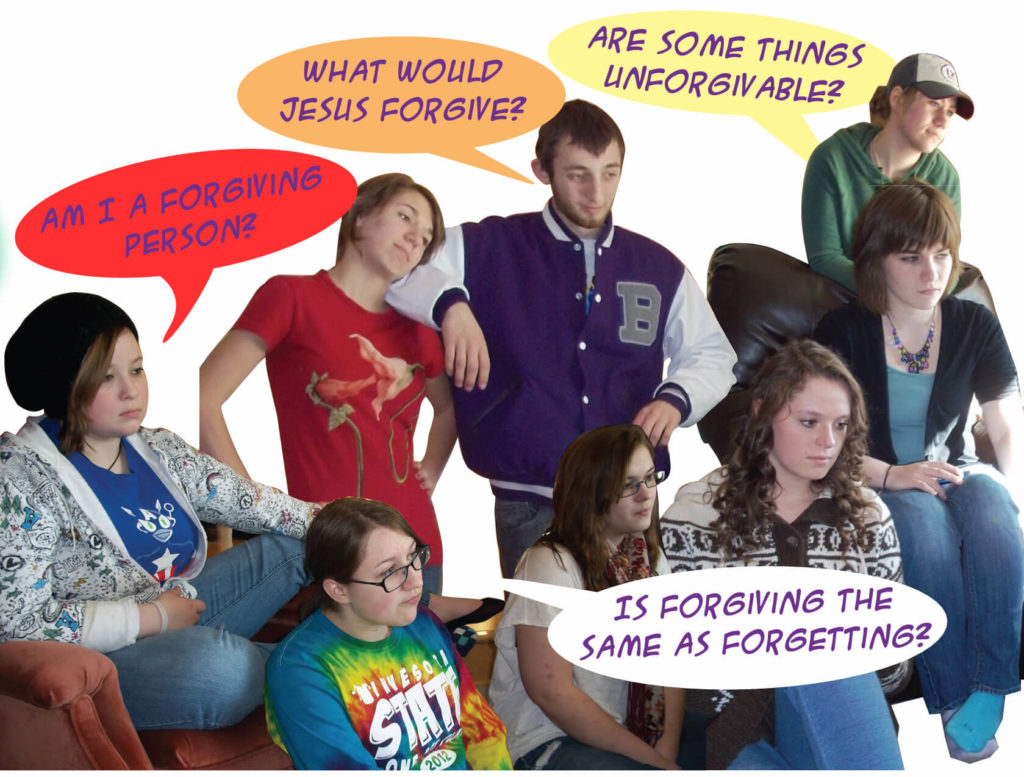
The cast wrestled with questions about forgiveness every day as they participated in The Amish Project, a one-act play by Jessica Dickey. The play tells the true story of the horrific killings of Amish girls in Nickel Mines, PA, in 2006.
A man who lived in the community entered a one-room Amish schoolhouse and shot the girls, then killed himself. Five girls died, five survived. Almost immediately after the shootings, the Amish community issued a statement forgiving the gunman and offering condolences to his family.
The play explores how this appalling violence, and this astonishing forgiveness, rippled through the larger community. The actors from Buffalo High School in Buffalo, Minnesota, took their play and its questions to state competition.
JULIE: How has being in this play made a difference in your lives?
TRACY (the director): I chose this play because it portrays the faith and culture of Amish people and demonstrates one of the most ultimate acts of forgiveness. I was amazed at the way this show shaped me and shaped the kids.
ERICA: I’m usually not a forgiving person. I tend to hold grudges. Now there are very few people that I haven’t forgiven.
ANNA: Being in this play makes me think if they can forgive, I can forgive. And if I do get angry I feel like a hypocrite because I am in this play that’s all about forgiveness and if I can’t forgive, I feel dumb.
LIZA: I realized the similarities between the Amish faith and ours. It’s all Christianity. It can be easy to push them away because they have a separate culture and way of living. But this made me feel accepting of their faith.
JULIE: The Amish are radical forgivers. Could you forgive like them? Do you forgive like them?
ANDY: The play has drastically changed my view on how to forgive someone, how to deal with revenge and feelings of vengeance.
EMMA: I want to say yes, but I can’t know if I’d really do it unless I’m put in the situation.
KATIE M.: It’s gotten a little easier to forgive people. Now when someone does something I just think, “I should probably forgive them.” It feels like a big weight has been lifted off my shoulders.
ERICA: I’ve learned to forgive but not forget. I’m not going to forget what happened or what they might have done. But, I can’t just hold a grudge forever.
ANNA: It’s not worth it being bitter and holding on to things because it hurts me more than the other person. I need to be reminded of that when I am in those situations.
TRACY: To prepare for the show we watched a movie about this incident, The Big Question. It illustrated the struggle one of the girl’s father went through. There were two sides to his struggle. The first was, “I’m so mad I want to kill the killer; my heart is broken.” The second was, “I know that I need to forgive him or it’s going to destroy my life.” It wasn’t easy, but he forgave him.
JULIE: Do you see any examples of this kind of forgiveness around you? Do you think it’s realistic?
ANNA: It is possible. If the world were really like that, we’d have less war and violence. But we haven’t grown up like that and learned to forgive like that.
ERICA: We strive for it, but it’s hard. If someone I love were murdered, I would have a hard time instantly forgiving the person. It’s rare.
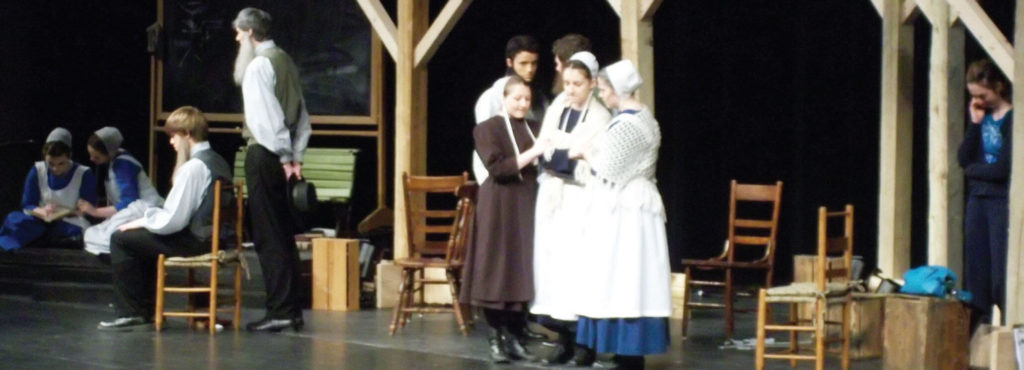
JULIE: I recently read a story in the newspaper about a woman who was run over and killed by a drunken driver as she was walking along the sidewalk with her friend. She was the only parent left because her husband had died just a few months earlier from cancer. And it was amazing! Her family came out publicly and said, “We forgive the driver and extend condolences to her family.”
ANDY: It’s out there, just scarce. Revenge seems more instantly pleasurable than forgiveness. People think that revenge is the best route when ultimately it isn’t very healthy.
KATIE C.: I think today’s society encourages us not to forgive. There are more stories about getting revenge, and how it makes you feel better. But it just damages you further.
ANNA: I told one of my friends about this play and she said, “Some things just are not forgivable.” And I thought, “What things are those?” Because, as a Christian, if I believe that Jesus forgives me for everything, how can things other people do be unforgivable?
ERICA: If the Amish can forgive a man for killing their daughters, how can we not forgive someone for doing something less hurtful than that? Nothing is unforgivable to me now.
JULIE: Have any of you received this kind of big forgiveness? I think that’s the other side of the coin. We don’t talk about what it feels like to receive forgiveness.
ANDY: The characters that were forgiven, like the character I played, find themselves hating the fact that they were forgiven because it’s not “normal.”
JULIE: I think being forgiven brings up the question of self-forgiveness. It asks that we give up our own self-hatred for what we did. For whatever reason, we often want to hang on to that.
LIZA: I can see that. We don’t forgive ourselves for the stupid things we have done. We think, “How could I do that? It was so stupid! I’m never going to forgive myself.”
ERICA: I have received a lot of forgiveness! I have many friends in this room, and they’ve probably forgiven me countless times. But then there are the big things.
ANNA: There is a kind of joy you feel when you are forgiven…it’s actually a hard feeling to describe. You just feel really happy.

